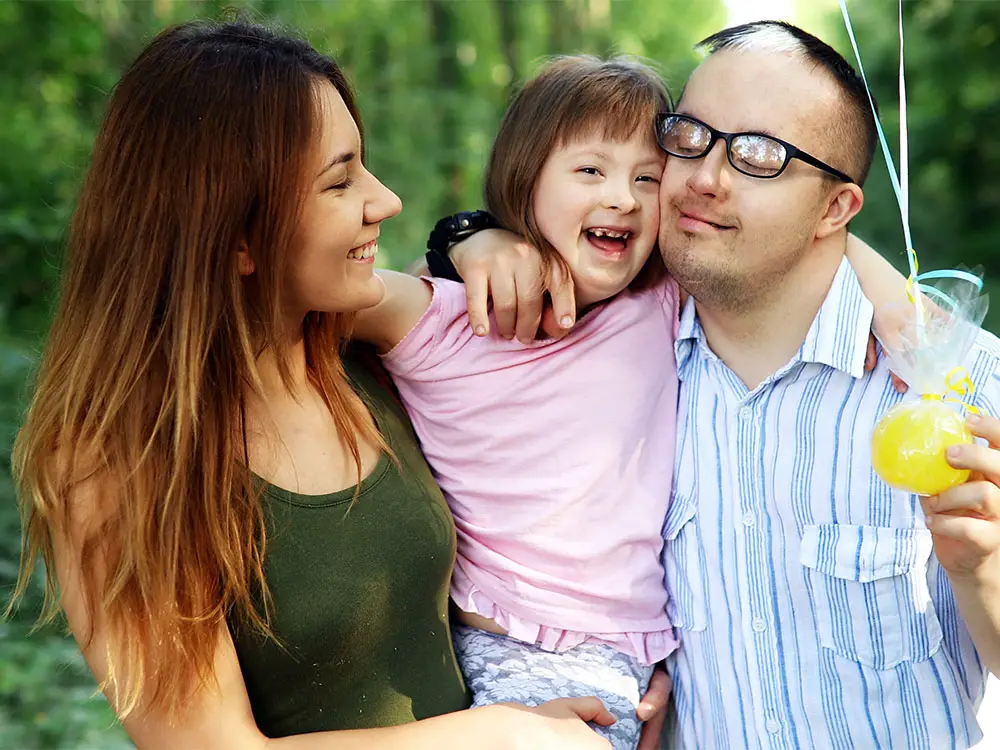


I recently had the privilege of attending a conference by Ken Moses, Ph.D., on how parents and families deal with this often devastating news. Listening to his theories and experiences, and combining this with my experience (degree in psychology, my father was an educated pastor and counselor, and both parents taught parenting classes), it becomes easier to understand what parents are dealing with when they find out about their child with a disability or delay. Dr. Moses' theory about grieving revolves around the stages of grieving (or he refers to them as states). He believes that the grief process (which is not linear or step-by-step) is a normal and necessary part of dealing with any bad or life-changing news. Some people fare better than others. Understanding this process can give people justification for their feelings and may help them to come out of it stronger in the end.
As an occupational therapist working in early intervention (birth-5 years of age), my team and I are often the first to suspect a problem and refer the parents for more testing or information. This is never easy for a parent to hear, even if they have suspicions that something is wrong. Even after therapy sessions begin, the parents are stuck in the process of grieving while at the same time trying to appear strong and learn all this new information they are being bombarded with. It is a very difficult and trying time for families.
The child that this couple brings into the world is their flesh and blood. When something goes wrong, parents often feel like they did something wrong somehow and may harbor resentment toward their child or their spouse or some other external event. I have also noticed that parents who adopt a child, knowing that the child has a disability or delays, do much better dealing with the challenges brought on by their situation. These parents usually are prepared to deal with these challenges before taking on this responsibility. However, most families do not have this choice, and working through the grief process is much more difficult and painful.
Many people associate grief with death, and so parents faced with the news that their child has a disability often may not feel justified in having these same feelings. They may think, ''things could be worse.'' However, these parents have also experienced a major (and as Moses puts it, a continual) loss. This is the loss of a dream. The realization that the child the parents had dreamed about having - before he/she was born or before they found out something was wrong - becomes shattered. Grief plays a role in dealing with that news and rebuilding a mindset that includes new dreams and goals than originally intended. This is not an easy process, but there is not much choice in it for the parents. In the article ''The Impact of Childhood Disability: The Parent's Struggle'', Moses states, ''As disability bluntly shatters the dreams, parents face a complicated, draining, challenging, frightening, and consuming task. They must raise the child they have while letting go of the child they dreamed of.''
The stages of grief include denial, anxiety, anger, depression, guilt, and fear. As mentioned before, these stages are not necessarily linear. Parents can enter and exit each of these stages several times throughout the process, and the process is never ''complete.'' Once a life-changing event or situation occurs, the way you look at life is never the same. Many of us know parents who have a child with a disability who appear to be doing very well and enjoying life as much if not more than parents with ''typical'' kids. If you ask these parents if they have always dealt with their child so well, they will probably tell you ''No.'' All parents need to go through this process to deal appropriately with their new situation. Some do it better than others.
Finding out that your child has a disability is straining families and relationships between parents and the other siblings in the family. It is important to realize that each parent and sibling will deal with the news and subsequent increased needs of the child at different paces. Often, seeking counseling to work through these issues and understanding your feelings can save a marriage and help you help your child in the long run.
The grief process allows you to accept your new situation in steps as you are ready to deal with it. Parents will ultimately be responsible for helping their child; more than any other therapist or medical professional. In today's culture, people often want a ''quick fix.'' This may include liposuction for overweight people or medicine for a disease. More often than not, there is not a quick fix, and investing yourself and other resources in the process is the only way to improve the situation. ''It does not take long for most parents to become aware that they, not some professional, are their child's medical, education, and therapy managers, even though they may have minimal knowledge of these areas'' (Moses).
In therapy, I have observed that when a parent has a child with a certain disability, that parent often will research that disability and treatments to the point that they become ''experts'' in that area. Of course, their ''expertise'' is often limited to how the disability is experienced in their particular child, but these parents can use this information and work with their therapists to come up with the best plan for their child. I feel it is important to be realistic about your new dreams and goals for your child, but this does not mean you shouldn't set your goals high. Just remember, as you delve into this new, scary world of a childhood disability, allow yourself some breathing room, and don't forget to take care of yourself as well!
Note: Please also check your spam or junk email folder.